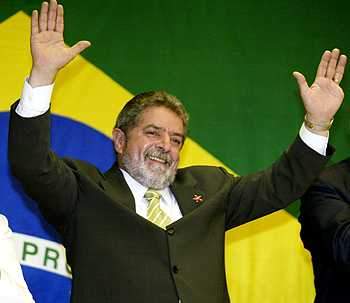10/10 Direct Democracy" www.paparty.co.uk (United Kingdom)
"In
a DD, being that individuals and not parties will decide upon all law,
isn't it obvious that DD isn't within the left/right spectrum and that
only parties are?
DD is anti-partisan and so does not occupy the same political dimension - partisan politics divides us [and starts ALL civil wars] where DD unites.
Isn't this the point on what we're all supposed to be working on? Replacing the partisan political system with a people-based political system?
The fact that this comes-up as an issue/question indicates that some [in their naivety] believe that 'representative' politicians will bring in DD. I can tell you from my own direct experience of working with them that this is the last thing they will ever do and, isn't it obvious why?
Pasted from our site:
MP Anne Widdecombe has stated that she would "never let majority public opinion voiced on my website influence my parliamentary votes." and she also states; "I would never let voters make decisions upon policy implementation." Before realising who he was talking with, MP George Galloway told the PA founder directly that "Direct democracy is the best way for the country to go!" adding "You could get rid of all us lot too." confirming that we can have what hypocritical politicians themselves admit is best for us but, only when it doesn't compromise what's best for them.
David Cameron recently remove any mention of even using technology simply to improve comms between reps and voters:
http://www.youtube.com/watch?v=9WZ158KkeT0&feature=youtu.be
Just as the ones who said "It's okay I have nothing to hide." have now let in the state surveillance, the ones among us who think DD can happen under Rrep Dem are making us weak and vulnerable.
Do you guys really think that Switzerland, Iceland, EU Initiative [for example] are DD? If you do, you've already bought into the propaganda of the reps who want to control any aspect of public participation and so you do us and DD a great disservice.
Do not confuse public participation with DD because they are not the same by any measure and all the reps want to do is to make people think that DD is part of Rep Dem [so they can control land tame it] but this can never be true [for obvious reasons].
Also, in both the UK and US, the pattern now clearly shows that public proposals that get voted upon in the UK Parliament and the US Senate, are proposals which politicians have already scheduled to vote on - what does this tell you?
'Public participation' under Rep Dem is a wholesale scam."
DD is anti-partisan and so does not occupy the same political dimension - partisan politics divides us [and starts ALL civil wars] where DD unites.
Isn't this the point on what we're all supposed to be working on? Replacing the partisan political system with a people-based political system?
The fact that this comes-up as an issue/question indicates that some [in their naivety] believe that 'representative' politicians will bring in DD. I can tell you from my own direct experience of working with them that this is the last thing they will ever do and, isn't it obvious why?
Pasted from our site:
MP Anne Widdecombe has stated that she would "never let majority public opinion voiced on my website influence my parliamentary votes." and she also states; "I would never let voters make decisions upon policy implementation." Before realising who he was talking with, MP George Galloway told the PA founder directly that "Direct democracy is the best way for the country to go!" adding "You could get rid of all us lot too." confirming that we can have what hypocritical politicians themselves admit is best for us but, only when it doesn't compromise what's best for them.
David Cameron recently remove any mention of even using technology simply to improve comms between reps and voters:
http://www.youtube.com/watch?v=9WZ158KkeT0&feature=youtu.be
Just as the ones who said "It's okay I have nothing to hide." have now let in the state surveillance, the ones among us who think DD can happen under Rrep Dem are making us weak and vulnerable.
Do you guys really think that Switzerland, Iceland, EU Initiative [for example] are DD? If you do, you've already bought into the propaganda of the reps who want to control any aspect of public participation and so you do us and DD a great disservice.
Do not confuse public participation with DD because they are not the same by any measure and all the reps want to do is to make people think that DD is part of Rep Dem [so they can control land tame it] but this can never be true [for obvious reasons].
Also, in both the UK and US, the pattern now clearly shows that public proposals that get voted upon in the UK Parliament and the US Senate, are proposals which politicians have already scheduled to vote on - what does this tell you?
'Public participation' under Rep Dem is a wholesale scam."








